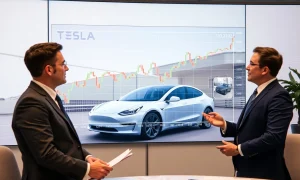British drivers face a radical taxation overhaul as a prominent think tank proposes a comprehensive pay-per-mile tax system that could generate £20 billion annually. Consequently, this proposal emerges as Chancellor Rachel Reeves confronts a £30 billion fiscal gap. Meanwhile, the rapid transition to electric vehicles continues to undermine traditional fuel duty revenues.
Understanding the Pay-Per-Mile Tax Proposal
The Resolution Foundation, a think tank with Labour connections, advocates for fundamental motoring tax reforms. Specifically, their pay-per-mile tax system would combine an annual levy with per-mile charges ranging from 3p to 9p. Heavier vehicles would pay higher rates reflecting road wear. Additionally, the proposal suggests tracking mileage through:
- Regular MOT checks
- Voluntary self-reporting systems
- Telematics technology
Fiscal Implications of Pay-Per-Mile Taxation
Currently, fuel duty generates approximately £28 billion yearly. However, the Office for Budget Responsibility projects this will decline to £22.6 billion by 2030. Therefore, the pay-per-mile tax could cover two-thirds of the Chancellor’s budget shortfall. Report author Adam Corlett emphasizes: “Motoring taxes represent both an important revenue stream and a significant fiscal risk.”
Industry Reaction to Pay-Per-Mile Plans
Motoring organizations immediately expressed strong opposition to the pay-per-mile tax proposal. Ian Taylor of the Alliance of British Drivers warned about privacy concerns and cost increases. Furthermore, he highlighted potential freedom implications from tracking systems. Meanwhile, the report also recommends cutting VAT on public charging points and gradually reversing the fuel duty freeze.
Implementation Challenges for Pay-Per-Mile Systems
The proposed pay-per-mile tax faces significant practical hurdles. Privacy advocates question data collection methods. Similarly, rural communities worry about disproportionate impacts. The Treasury remains non-committal, stating tax decisions occur during fiscal events. Nevertheless, the November Budget deadline creates urgency for revenue solutions.
Future of Motoring Taxation in Britain
As electric vehicle adoption accelerates, the pay-per-mile tax debate intensifies. Corlett suggests annual fuel duty increases could raise rates to nearly 70p per litre by 2030. Conversely, environmental groups support mileage-based charging for reducing congestion. Ultimately, the government must balance revenue needs with public acceptance.
Frequently Asked Questions
How would the pay-per-mile tax work?
The system would charge drivers per mile driven, with rates varying by vehicle type and tracking through MOT checks or telematics.
Why is this tax being proposed now?
Electric vehicle adoption is rapidly reducing fuel duty revenues, creating a £30 billion budget gap that requires alternative taxation methods.
What are the main concerns about this tax?
Critics cite privacy issues from tracking, disproportionate impact on rural drivers, and increased costs for essential travel.
How much could this tax raise annually?
The Resolution Foundation estimates the pay-per-mile system could generate up to £20 billion per year for Treasury coffers.
When might this tax be implemented?
No implementation timeline exists currently, but the November Budget could reveal the government’s position on motoring tax reforms.
Are there alternatives to pay-per-mile taxation?
Alternatives include increasing fuel duty, implementing congestion charges, or creating vehicle weight-based annual taxes.








